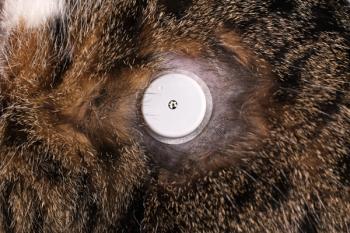
3 mistakes clients with diabetic pets make
Spend a little time educating these veterinary clients and help them avoid errors.
Getty Images
The American Association of Feline Practitioners (AAFP) improves the health and welfare of cats by supporting high standards of practice, continuing education, and scientific investigation. The AAFP has a long-standing reputation and track record in the veterinary community for facilitating high standards of practice and publishes guidelines for practice excellence which are available to veterinarians at the AAFP website. Over the years, the AAFP has encouraged veterinarians to continuously re-evaluate preconceived notions of practice strategies in an effort to advance the quality of feline medicine practiced. For more information, visit:
A diabetes diagnosis can be confusing for pet owners. You can help protect pets' health–and preserve the precious bond between pets and family members-by teaching them to avoid these mistakes.
Mistake No. 1: Diet disasters
For cats, particularly, clients sometimes don't realize the importance of diet changes. Cats eating canned only foods are so much more likely (in my experience) to experience clinical remission versus cats that eat only dry food, or a combo of dry and canned. Even simply overfeeding dry treats can have an impact on these cats. So any little adjustment we can make to tailor the diet towards canned food can be helpful.
Mistake No. 2: Double dipping
Thankfully double dipping isn't too common, but it's of great concern. When in happens it's often because one person in the household gives the insulin and another person repeats the dose a few hours later, unaware. Either keeping a medication calendar or having the same person dose daily can help to prevent these occurrences.
Mistake No. 3: Sloppy syringe disposal
Improper disposal of syringes is another worry. Local ordinances vary, so know what's appropriate for your area and share this information with your clients. Regardless needles should be disposed of at home via sharps containers, and afterwards according to your local guidelines.
Newsletter
From exam room tips to practice management insights, get trusted veterinary news delivered straight to your inbox—subscribe to dvm360.




